Daily Vocabulary Words: List of Daily Used Words in Leading Indian Newspapers
Hi there. Welcome to this special section @ Wordpandit. Our endeavour here is straightforward: highlighting daily vocabulary words that you would come across in leading newspapers in the country. We have included the following newspapers in our selection:
• The Times of India
• The Economic Times
• Hindustan Times
• Mint
• Indian Express
We are putting in extensive work to develop your vocabulary. All you have to do is be regular with this section and check out this post daily. This is your repository of commonly used words; essentially, we are posting a list of daily used words. Hence, this has significant practical application as it teaches you words that are commonly used in leading publications mentioned above.
Visit the website daily to learn words from leading Indian newspapers.
WORD-1: Outrageous
CONTEXT: The outrageous reactions to the implementation of the Citizenship (Amendment) Act (CAA) from most Opposition parties and Muslim organisations are on predictable lines.
SOURCE: Hindustan times
EXPLANATORY PARAGRAPH: Think about seeing a clown with a super bright, colorful outfit and doing really silly things that make everyone laugh a lot. “Outrageous” is when something is very unusual or funny, or sometimes when someone acts very badly, and it surprises people a lot.
MEANING: Shockingly bad or excessive; very bold and unusual (adjective).
PRONUNCIATION: ow-TRAY-jus
SYNONYMS: shocking, scandalous, extreme, ridiculous, preposterous
USAGE EXAMPLE:
1. The price of the concert tickets was outrageous.
2. He told an outrageous joke that made everyone laugh.
3. Her outrageous claim turned out to be false.
4. The movie was filled with outrageous stunts.
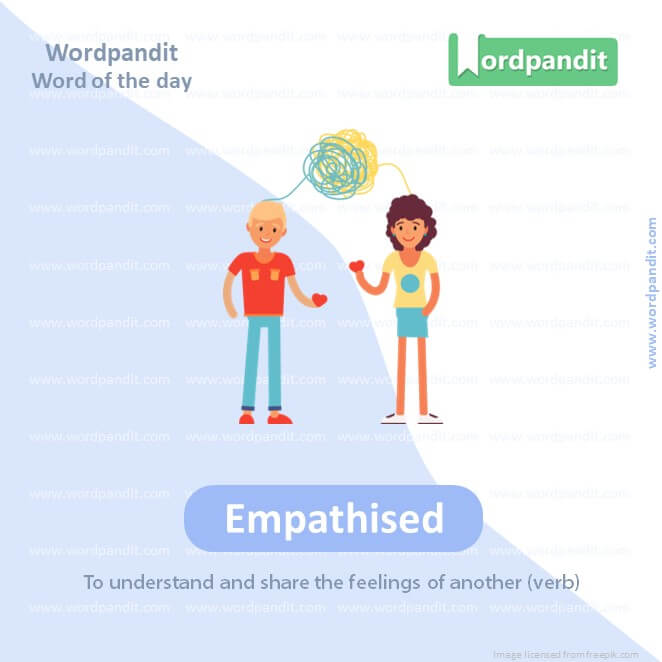
WORD-2: Empathise
CONTEXT: Those who had directly or vicariously contributed to the creation of Pakistan will find it difficult to empathise with the victims of this man-made calamity that hit the subcontinent in 1947.
SOURCE: Hindustan times
EXPLANATORY PARAGRAPH: Imagine your friend falls down and feels sad, and you feel sad too because you understand how much it hurts. When you “empathise,” you can understand and feel what another person is feeling.
MEANING: To understand and share the feelings of another (verb)
PRONUNCIATION: EM-puh-thize
SYNONYMS: sympathize, understand, relate to, share feelings, connect
USAGE EXAMPLE:
1. She could empathise with her friend’s disappointment.
2. It’s important to empathise with others to build strong friendships.
3. The counselor empathised with the student’s struggles.
4. To solve the conflict, both sides need to empathise with each other.
WORD-3: Vehemently
CONTEXT: the Congress vehemently opposed the Partition. Gandhiji proclaimed Pakistan’s formation could only happen over his dead body.
SOURCE: Hindustan times
EXPLANATORY PARAGRAPH: Think about how you might stomp your feet and shout loudly when you really, really want something or disagree with something. “Vehemently” is doing or saying something with a lot of energy and strong feelings.
MEANING: Showing strong and passionate feelings or opinions (adverb).
PRONUNCIATION: VEE-heh-muhnt-lee
SYNONYMS: passionately, forcefully, strongly, fervently, intensely
USAGE EXAMPLE:
1. She vehemently opposed the new rule at school.
2. He argued vehemently in defense of his project.
3. The crowd cheered vehemently for the winning team.
4. The activist spoke vehemently about the need for environmental protection.
WORD-4: Beleaguered
CONTEXT: Leaders of the Congress and the Muslim League assured the beleaguered Hindus that their religious identity and dignity would be safe in the new Islamic nation.
SOURCE: Hindustan times
EXPLANATORY PARAGRAPH: Imagine being surrounded by a group of kids all wanting to play with your new toy at once, and you feel overwhelmed. “Beleaguered” is when someone is in a tough situation, with lots of problems or people causing stress, like being surrounded and feeling stuck.
MEANING: Besieged by problems or difficulties, or surrounded by enemies (adjective).
PRONUNCIATION: buh-LEE-gurd
SYNONYMS: besieged, under siege, pressured, troubled, overwhelmed
USAGE EXAMPLE:
1. The beleaguered company struggled to avoid bankruptcy.
2. The beleaguered city was surrounded by enemy troops.
3. She felt beleaguered by her many responsibilities.
4. The coach faced beleaguered questions from the press about the team’s performance.
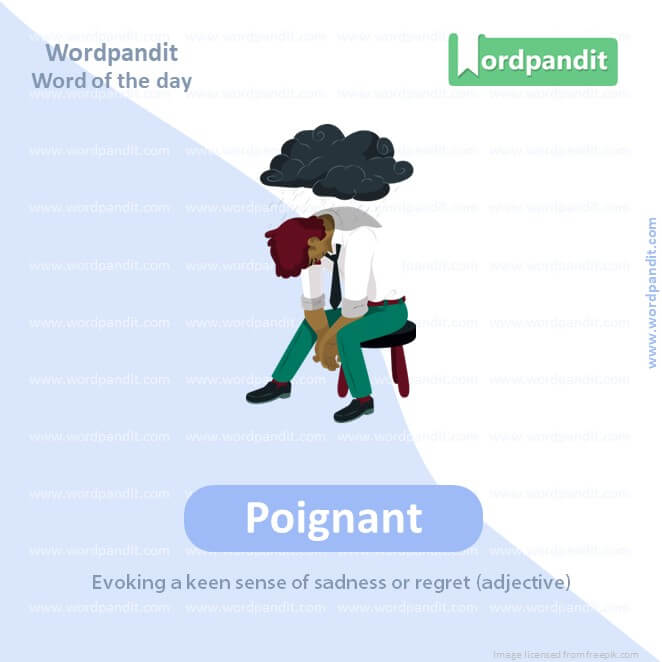
WORD-5: Poignant
CONTEXT: This poignant episode has been encapsulated by his younger son, Satish Gujral, in A Brush with Life: An Autobiography.
SOURCE: Hindustan times
EXPLANATORY PARAGRAPH: Think about a movie that makes you feel really sad and maybe even cry because it’s about something like losing a pet. “Poignant” is when something makes you feel very deeply sad or touched, often because it reminds you of something important or true.
MEANING: Evoking a keen sense of sadness or regret (adjective)
PRONUNCIATION: POY-nyunt
SYNONYMS: touching, moving, sad, emotional, heartrending
USAGE EXAMPLE:
1. The poignant movie left everyone in tears.
2. She shared a poignant story about her childhood.
3. The photograph was a poignant reminder of her lost friend.
4. The music had a poignant quality that stirred deep emotions.
WORD-6: Vociferously
CONTEXT: But they are the ones who worked vociferously for the creation of Pakistan.
SOURCE: Hindustan Times
EXPLANATORY PARAGRAPH: Imagine shouting loudly at a soccer game to cheer on your team because you really want them to win. “Vociferously” is speaking or shouting very loudly and strongly, showing you feel very strongly about something.
MEANING: Doing something in a loud and forceful manner, especially in expressing opinions (adverb).
PRONUNCIATION: vo-SIF-er-uh-slee
SYNONYMS: loudly, forcefully, vehemently, clamorously, stridently
USAGE EXAMPLES:
1. The crowd protested vociferously against the new law.
2. She argued vociferously in the debate, making her point clear.
3. The fans vociferously cheered for their team throughout the match.
4. He vociferously denied the allegations against him.
WORD-7: Infringes
CONTEXT: Those labelling the CAA as a “blow to the Constitution” oppose the Uniform Civil Code (Article 44) claiming it infringes the right of communities to preserve their distinct culture.
SOURCE: Hindustan Times
EXPLANATORY PARAGRAPH: Imagine you have a rule in your house that you can’t take cookies without asking. If your brother takes one secretly, he’s breaking the rule. “Infringes” means doing something that breaks a rule or law or goes into an area where you’re not supposed to be.
MEANING: Violates or encroaches upon someone’s rights or territory (verb).
PRONUNCIATION: in-FRINJ-es
SYNONYMS: violates, breaches, encroaches, trespasses, intrudes
USAGE EXAMPLES:
1. Copying someone else’s work infringes on copyright laws.
2. The new policy infringes upon our privacy rights.
3. Building a fence too high might infringe on city regulations.
4. The company was accused of infringing on patent rights.
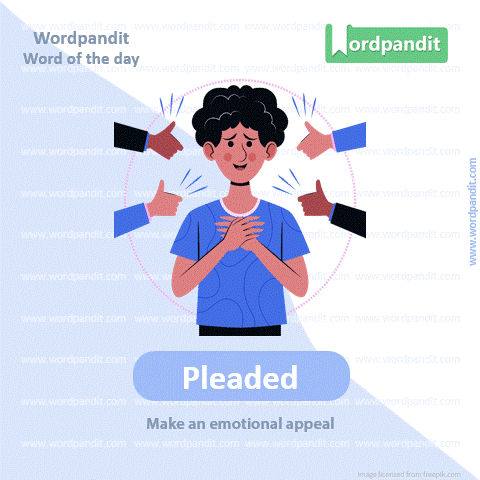
WORD-8: Pleaded
CONTEXT: They also pleaded for the restoration of Article 370, which gave preferential treatment to a Muslim-majority State.
SOURCE: Hindustan Times
EXPLANATORY PARAGRAPH: Imagine really wanting to go to the park, and you ask your mom in a way that shows you want it very, very much. When you “plead,” you are asking for something with a lot of emotion because it’s important to you.
MEANING: Make an emotional appeal
PRONUNCIATION: PLEED-ed
SYNONYMS: begged, implored, entreated, appealed, beseeched
USAGE EXAMPLES:
1. She pleaded with her parents to stay up late.
2. The defendant pleaded for mercy in court.
3. He pleaded with his friend to reconsider the decision.
4. The charity pleaded for more donations to help the victims.
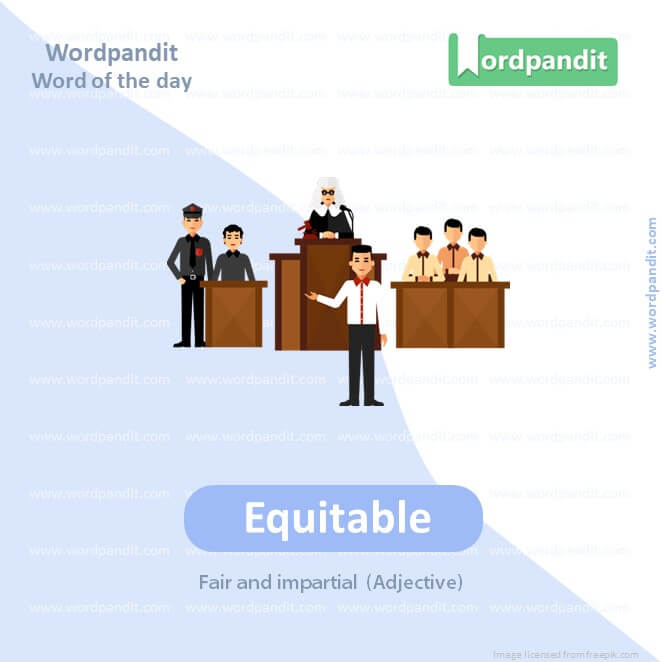
WORD-9: Equitable
CONTEXT: GNSS lays the foundation for equitable transport taxation.
SOURCE: Hindustan Times
EXPLANATORY PARAGRAPH: Think about sharing toys fairly with your friends, so everyone gets a turn and no one is left out. “Equitable” means something is fair and equal for everyone involved.
MEANING: Fair and impartial (adjective)
PRONUNCIATION: EK-wi-tuh-bul
SYNONYMS: fair, just, impartial, unbiased, even-handed
USAGE EXAMPLES:
1. The teacher tried to make an equitable decision for all students.
2. The equitable distribution of resources is important in a society.
3. The judge made an equitable ruling in the case.
4. Efforts were made to ensure an equitable sharing of the inheritance.
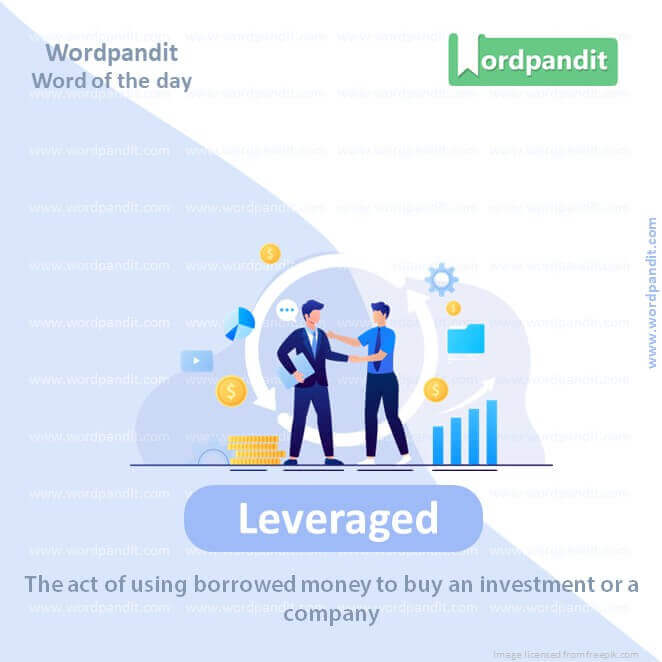
WORD-10: Leveraged
CONTEXT: GNSS technology can be leveraged to introduce continuous emissions-linked taxation regimes like distance-based taxation and transition away from flat taxes.
SOURCE: Hindustan Times
EXPLANATORY PARAGRAPH: Imagine using a big stick to lift something heavy that you couldn’t lift with just your hands. “Leveraged” means using something you have, like a tool or an advantage, to achieve more or get better results.
MEANING: The act of using borrowed money to buy an investment or a company.
PRONUNCIATION: LEV-erijd
SYNONYMS: utilized, exploited, capitalized on, made use of, employed
USAGE EXAMPLES:
1. The company leveraged its reputation to gain more clients.
2. She leveraged her experience to get a better job.
3. The negotiator leveraged his skills to secure a favorable deal.
4. Technology can be leveraged to improve educational outcomes.
Vocabulary Importance
In the realm of language learning, understanding ‘vocabulary importance’ is a fundamental concept. Words are the building blocks of language and a rich vocabulary fuels effective and persuasive communication. However, embracing ‘vocabulary importance’ involves more than just acknowledging its role – it requires you to integrate it into your learning strategy.
To truly grasp ‘vocabulary importance’, expose yourself to a variety of reading and listening activities. Whether it’s reading novels, engaging with podcasts, or watching films in your the profound impact of having a robust vocabulary arsenal and will illuminate the practical ‘vocabulary importance.’
Additionally, recognizing ‘vocabulary importance’ necessitates an active approach to vocabulary acquisition. Regularly dedicate time to learning new words. Use flashcards, word lists, language apps, or even set a ‘word of the day’ to maintain a steady flow of vocabulary learning.
Incorporating the learnt vocabulary into your speech and writing is non-negotiable when understanding ‘vocabulary importance’. Regular usage not only enhances vocabulary retention, but it also uncovers the magic of eloquent expression that a blossoming vocabulary can yield.
It’s also beneficial to lean on memory aids in recognizing ‘vocabulary importance’. Associating words with images, stories or personal anecdotes creates strong memory hooks, enhancing vocabulary recall and solidifying the understanding of ‘vocabulary importance’.
To sum it up, ‘vocabulary importance’ is not just a theory to be noted, but a mantra to be embraced in your language learning journey. Engage with a wide variety of resources, actively learn and use new words, and utilize effective recall techniques. As you uncover the depths of ‘vocabulary importance’, you’ll realize that every new word is a fresh shade on your language palette, painting your communication canvas with hues of eloquence, clarity, and confidence.













